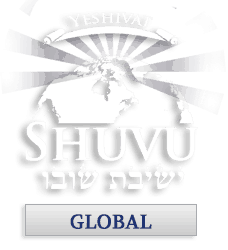וְהָיָה֙ כִּֽי־תָב֣וֹא אֶל־הָאָ֔רֶץ אֲשֶׁר֙ יְהוָ֣ה אֱלֹהֶ֔יךָ נֹתֵ֥ן לְךָ֖ נַחֲלָ֑ה וִֽירִשְׁתָּ֖הּ וְיָשַׁ֥בְתָּ בָּֽהּ׃ וְלָקַחְתָּ֞ מֵרֵאשִׁ֣ית ׀ כָּל־פְּרִ֣י הָאֲדָמָ֗ה אֲשֶׁ֨ר תָּבִ֧יא מֵֽאַרְצְךָ֛ אֲשֶׁ֨ר יְהוָ֧ה אֱלֹהֶ֛יךָ נֹתֵ֥ן לָ֖ךְ וְשַׂמְתָּ֣ בַטֶּ֑נֶא וְהָֽלַכְתָּ֙ אֶל־הַמָּק֔וֹם אֲשֶׁ֤ר יִבְחַר֙ יְהוָ֣ה אֱלֹהֶ֔יךָ לְשַׁכֵּ֥ן שְׁמ֖וֹ שָֽׁם׃
And it will be, when you come into the land which the Lord, your God, gives you for an inheritance, and you possess it and settle in it, that you shall take of the first of all the fruit of the ground, which you will bring from your land, which the Lord, your God, is giving you. And you shall put [them] into a basket and go to the place which the Lord, your God, will choose to have His Name dwell there.
Deuteronomy 26:1-2
This week’s parsha begins with the mitzvah of Bikurim. Bikurim, firstfruits, or the subject of an entire Mishnah and were a very important aspect of Israel’s agricultural life. The mitzvot consists of taking an undetermined but representative portion of newly ripened produce of the 7 species and bringing them to the temple as an offering.
In ancient times, the bringing of Bikurim was a cause for much celebration and fanfare. The Bikurim were brought in a basket to the temple, and they were handed to the Kohayn to eat. Then the offeror‘s of the Bikurim, would recite Deuteronomy 26:5-10. The recitation is a brief recap of the history of the Jewish people, and how Hashem brought us to, and gave us the land of the promise. The Bikurim are the only offer that is brought with an accompanying recitation.
1 Corinthians 15:20, in speaking of the resurrection, tells us that Yeshua is the firstfruits of those that have died. This is very interesting language, why is Yeshua the Bikurim? Note that Paul could have said that Yeshua is first of those to be resurrected, but he did not. Paul labeled Yeshua as the Bikurim, the firstfruits.
The most common explanation for this is simply that Paul meant that Yeshua was the first of those to be resurrected. Unfortunately, this completely misses the point. As indicated above poking of said this, if that’s what he meant. What Paul meant was that Yeshua is like the Bikurim.
A key to understanding how Yeshua is like the Bikurim, is in understanding the Bikurim themselves. The recitation of Deuteronomy 26:5-10 is what really makes the Bikurim stand out from among all the other offerings. The recitation indicates that the Bikurim, more than any other offering, is a celebration of Hashem, giving us the land of the promise. The Bikurim are all about the land.
So, when Paul says that Yeshua is the Bikurim, he is time, the resurrection to the land of Israel. Yeshua is the Bikurim of the resurrection, that is, Yeshua is the first of the resurrection brought to the land. That the resurrection of Yeshua is the beginning of the return from exile, the Geulah. Paul understood the connection between the return from exile, and the land. He understood that the resurrection may occur in its fullness only with the return from exile and the return from exile may only occur in its fullness with the resurrection. It is a key part in understanding the benediction in the Amidah, “blessed are you, O Lord our God, reviver of the dead.” Shabbat shalom.
